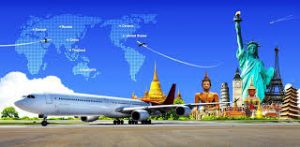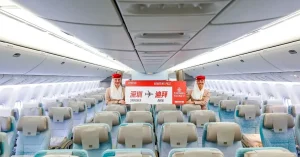The global COVID-19 pandemic has brought almost all travel to a grinding halt. The only event in my life that comes close to this shock is the 9/11 attacks in the U.S. that grounded flights worldwide.
While the economic impact on the travel industry will be significant, there’s also a silver lining. Rarely in the history of business has an entire sector had the opportunity to press pause and strategize on what comes next. At trivago, my colleagues and I have been investing our time and resources into exploring what travel will look like beyond the pandemic and how we can serve the changing needs of travelers and empower people to get more out of life.
The travel industry will have to navigate many challenges, both logistical and psychological, to get people excited about traveling again. Travelers will have heightened anxiety around taking trips depending on infection rates and new outbreaks. They also will want more flexibility with options for refunds, cancellations, etc.
On the plus side, I’m sensing pent-up demand for travel. People want to leave their homes and expand their horizons. So how can technology help people get excited about the prospect of traveling again while also offering increased safety and flexibility? I see the following four dimensions as critical in the coming months.
Technology that enables people to search and book local travel will fulfill two consumer needs coming out of the lockdown: the desire to travel closer to home to control risks and the need for less expensive travel while the economy recovers.
It may take a long time for travelers to gravitate back toward crowded airports and tourist sites. Forty percent of air passengers will wait at least six months before regularly flying again, according to an April survey by the IATA.
Instead, I foresee they will look to less-trafficked regional destinations they can reach by car, bus or train. This crisis offers an opportunity for metasearch platforms powered by artificial intelligence to curate these types of trips to unusual places. For example, a couple living in Sacramento might avoid San Francisco’s Fisherman’s Wharf and opt for visiting small wineries in California’s Gold Country. They’ll need help creating a driving itinerary and finding the right accommodations in the vast Sierra Nevada Mountains.
- Increasing flexibility and helping consumers understand all the options
It will be more important than ever for travel technology companies to consider how they’re offering consumers increased flexibility and peace of mind when booking. So many travelers have either lost money or have had difficulty obtaining refunds from canceled travel plans in 2020. Think about the thousands of travelers affected by the postponement of the Summer Olympic Games in Tokyo, for instance.
This peace of mind will rise from increased transparency on booking platforms about cancellation policies, refund processes and trip insurance options. It will be critical to explain how their travel problems will be solved in the event of COVID-19 outbreaks and new restrictions on movement. Travelers also will want to quickly understand payment terms when comparing accommodations. For example, is a deposit or full prepayment required, or can the consumer simply pay at the hotel when they check out?
- Helping consumers prioritize mental and psychological comfort
Comfort and safety will take on varying meanings coming out of the pandemic depending upon who you ask. While some travelers may crave open space after being stuck inside, while others may opt for quieter, more secluded destinations and accommodations.
Now that social distancing has become a second-nature behavior in many public places, what will the concept look like at big hotel chains? Recently, Hilton announced that it is partnering with Lysol and the Mayo Clinic to help with its hotel cleanliness plan for when its properties are fully back in business. Some travelers are likely to view large hotel chains as more hygienic and will rely on the professional cleaning and consistent policies for peace of mind. We will also see more hotel chains enter the hybrid accommodations space, offering homelike experiences within their hotels that help guarantee more privacy and consistent hygiene.
Other travelers may prefer to mitigate their risks by renting alternative accommodations. Although a consumer may not know who was in an apartment before them, at least they can control almost everything about the space and the environment — particularly hygiene — while staying there. Airbnb recently shared plans to roll out a cleaning protocol program, including a mandatory 72-hour buffer between guest stays.
Either way, booking technologies can support post-pandemic preferences by developing ways to lead customers to trips with their top priorities considered. Digital platforms can help users to understand the standards of cleanliness and privacy between different properties. This may come in the form of a search filter, targeted advertising or even a quiz to determine the right type of stay based on personal concerns.
- New data and tools that support the traveler journey
Knowledge is power, and knowledge will be key for people looking to book trips once the lockdown is lifted. It will be important for consumers to know where to find not only reliable data regarding virus cases, but also answers to logistical questions: What places are open? Where is it safe? What is accessible? These questions are complex and fast-changing, presenting the need for simplification for consumers searching for safe adventures.
There is a significant opportunity for booking platforms to support consumers finding reliable, current information regarding which regions are open and offering attractions for travelers.
It may take the form of a heat map where consumers can see infection rate information, health policies for different areas, and how accessible certain cities are via plane, train and other forms of transport.
While these solutions will not come overnight, travel restrictions will eventually be lifted, and there will be a desire to travel again. Technology and technologists will not have all the answers, but they do have the ability to empower an industry getting back on its feet.




